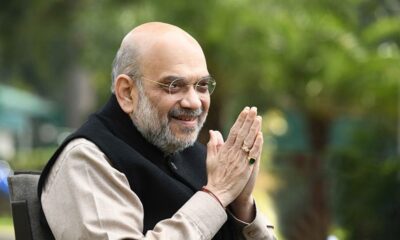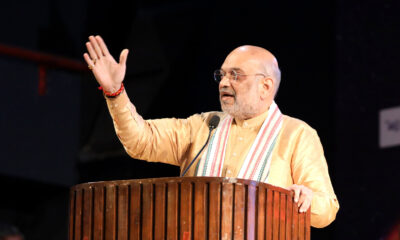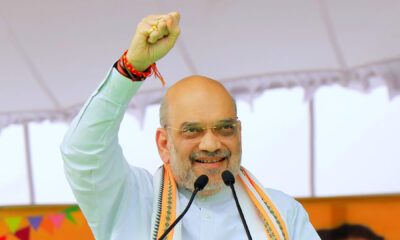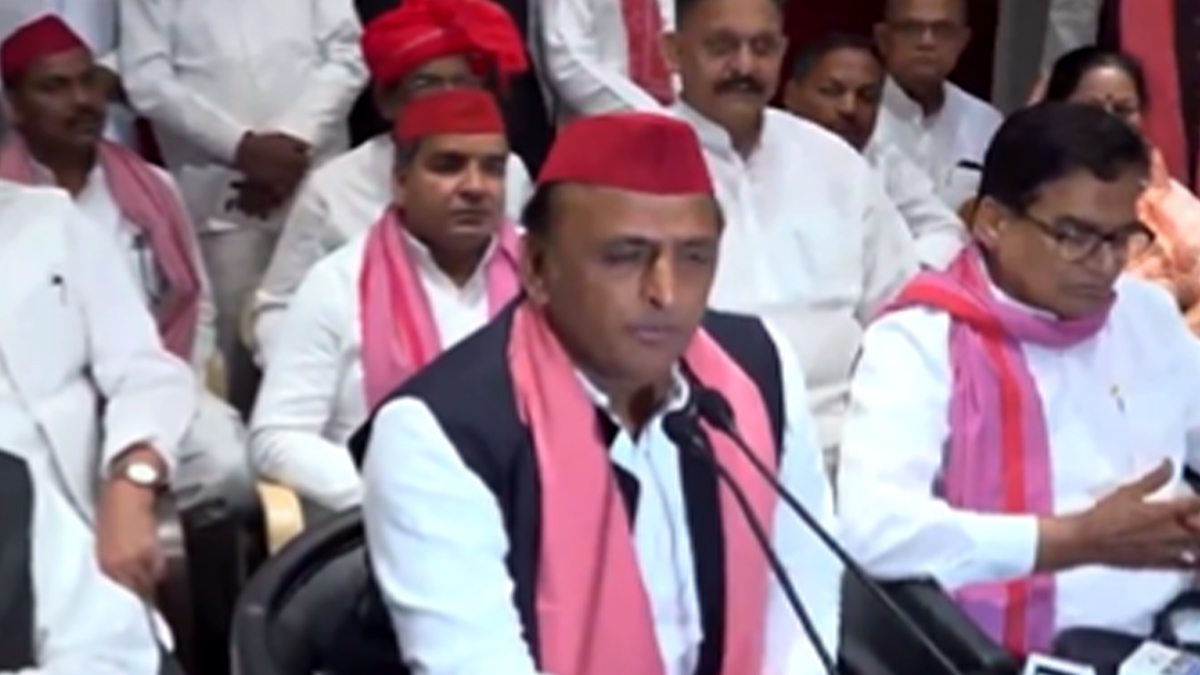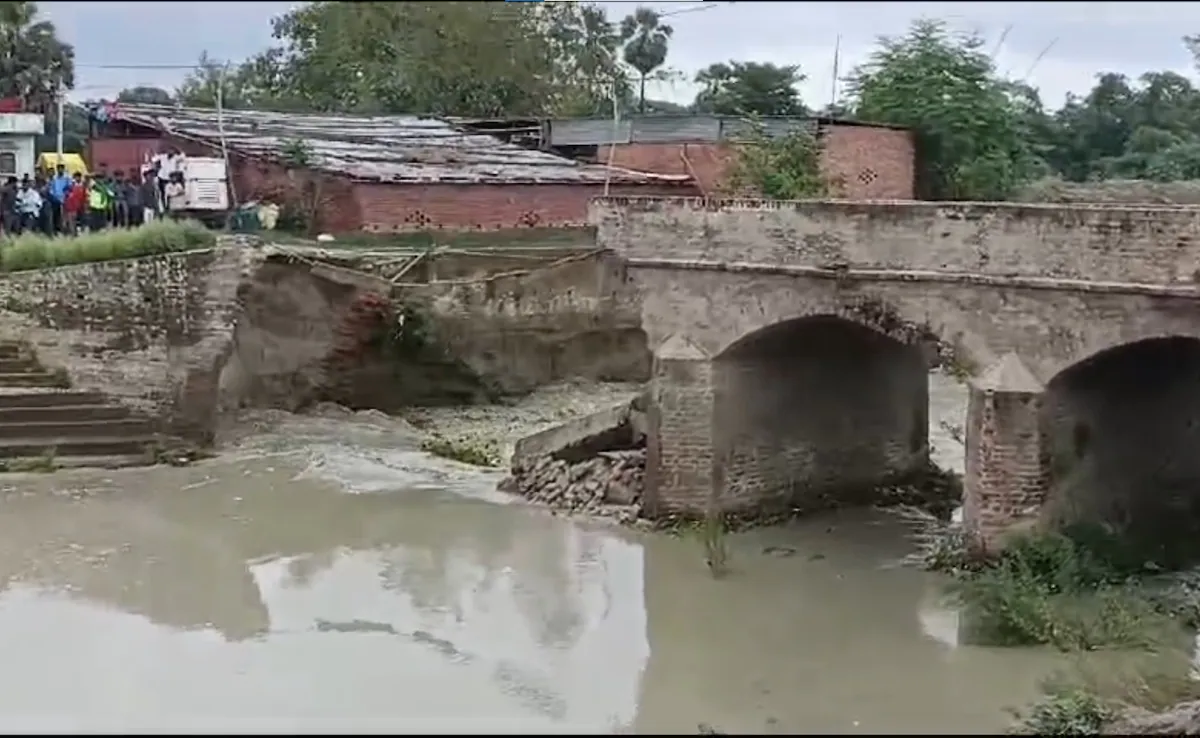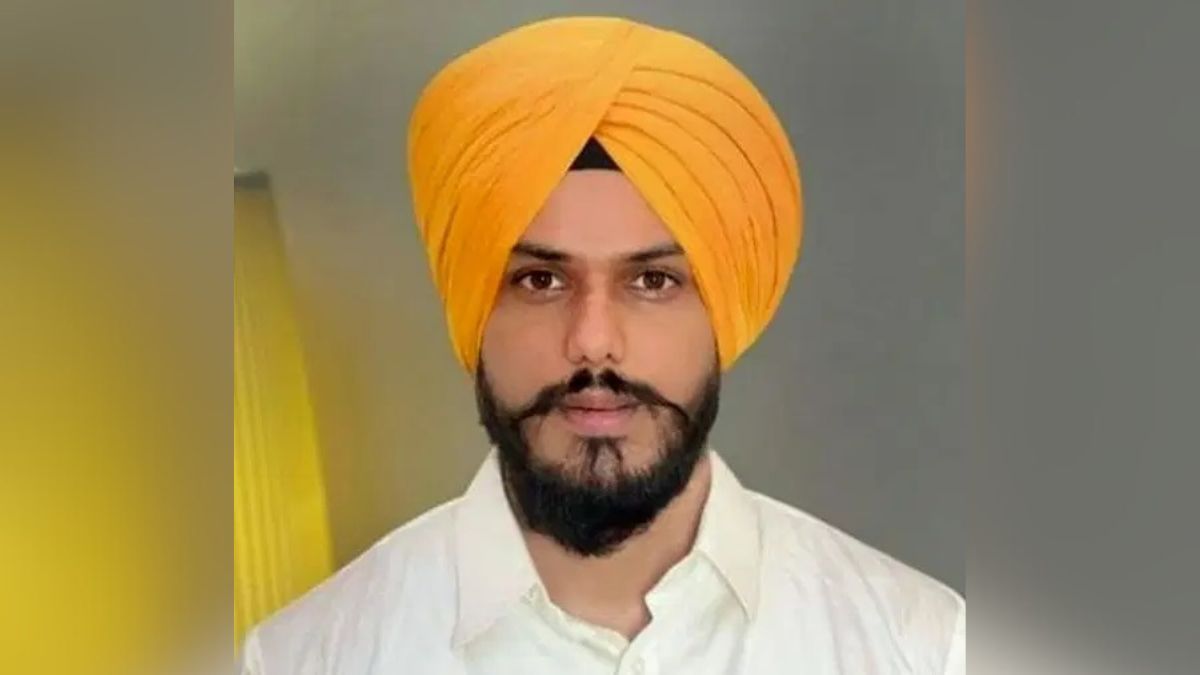Hyderabad: All India Majlis-e-Ittehadul Muslimeen (AIMIM) leader, Asaduddin Owaisi, launched a scathing attack on Home Minister Amit Shah on Monday, accusing him of dishonesty akin to India’s first Prime Minister, Jawaharlal Nehru. This rebuke followed Amit Shah’s assertion that the Hyderabad Police Action had been orchestrated by the then Home Minister, Sardar Vallabhbhai Patel, without any loss of life.
Owaisi, addressing the ‘National Integration Day‘ event after leading a motorcycle rally, referenced the Sunderlal Report, which detailed the atrocities committed and lives lost during the integration of Hyderabad into the Indian Union. He stated, “Amit Shah’s speech today was rife with falsehoods, much like Nehru’s address on All India Radio back on September 18, 1948. The Sunderlal Report exposes both Amit Shah’s and Nehru’s claims as blatant untruths.”
Owaisi asserted that Hyderabad could have been integrated peacefully, without any bloodshed, but the decisions made by the leaders of that era resulted in the loss of numerous lives. He emphasized that this was not his personal assessment but was corroborated by the findings of Qazi Abdul Ghaffar and Pandit Sunderlal, who were dispatched to assess the situation in Hyderabad.
According to Owaisi, the Sunderlal Report documented that for every Hindu killed by the Razakars, a hundred Muslims were killed in retaliation. Tragic accounts included the discovery of women’s bodies in wells with their young children still clinging to them.
The Sunderlal Report estimated that over 20,000 Muslims lost their lives. Remarkably, Sardar Vallabhbhai Patel chose to dismiss the report. Owaisi challenged the BJP, asking, “If the BJP claims it’s a lie, then why did Indira Gandhi, in the Lok Sabha, argue that releasing the report to the public would not be in the national interest?”
Owaisi also took a swipe at opposition parties, accusing them of likening him to the Razakars or Nizams and questioning AIMIM’s celebration of National Integration Day. He retorted, “Hyderabad was once a princely state under the Nizams. If you study history, you’ll find no mention of the RSS in its struggle for independence. The RSS wasn’t prominent, and the BJP is a more recent phenomenon.”
He further elaborated, “During the Nizam’s rule, I would have felt stifled because it was a feudal system where one couldn’t speak freely in front of rulers. Our country achieved freedom, and we gained the right to express ourselves openly.”
Owaisi highlighted the contributions of Muslims in the freedom struggle, citing the example of the Imam of the Makkah Masjid, who was among the first sent to Kala Paani for opposing the Nizams and British rule. He recalled the valiant actions of individuals like Maulvi Alauddin and Turrebaaz Khan, who fought for India’s independence.
Despite acknowledging the Nizam’s contributions to Hyderabad’s development, including the construction of infrastructure such as the old Begumpet Airport, Gandipet, Himayat Sagar, and several temples and institutions, Owaisi emphasized that freedom, justice, and equality were lacking under their rule.
Owaisi strongly criticized the Congress and BJP for equating AIMIM with the Razakars and MIM led by Qasim Razvi. He clarified that AIMIM was founded by Abdul Wahid Owaisi and was distinct from the Razakars who had migrated to Pakistan. He urged the expulsion of individuals with Godse and Savarkar’s ideologies from the country.
Addressing the ongoing atrocities against minorities, Owaisi condemned the demolitions of homes and shops without due process after violence erupted in Nuh, Haryana. He expressed sorrow over the killing of three Muslim men by a Railway Protection Force constable on the Jaipur Express in August, highlighting discrimination based on appearance.
Owaisi questioned the Rajasthan government’s silence and alleged discrimination against Junid and Nasir, whose charred bodies were discovered in a Bolero in Rajasthan’s Mewat after they were accused of cattle transport and abducted in February.
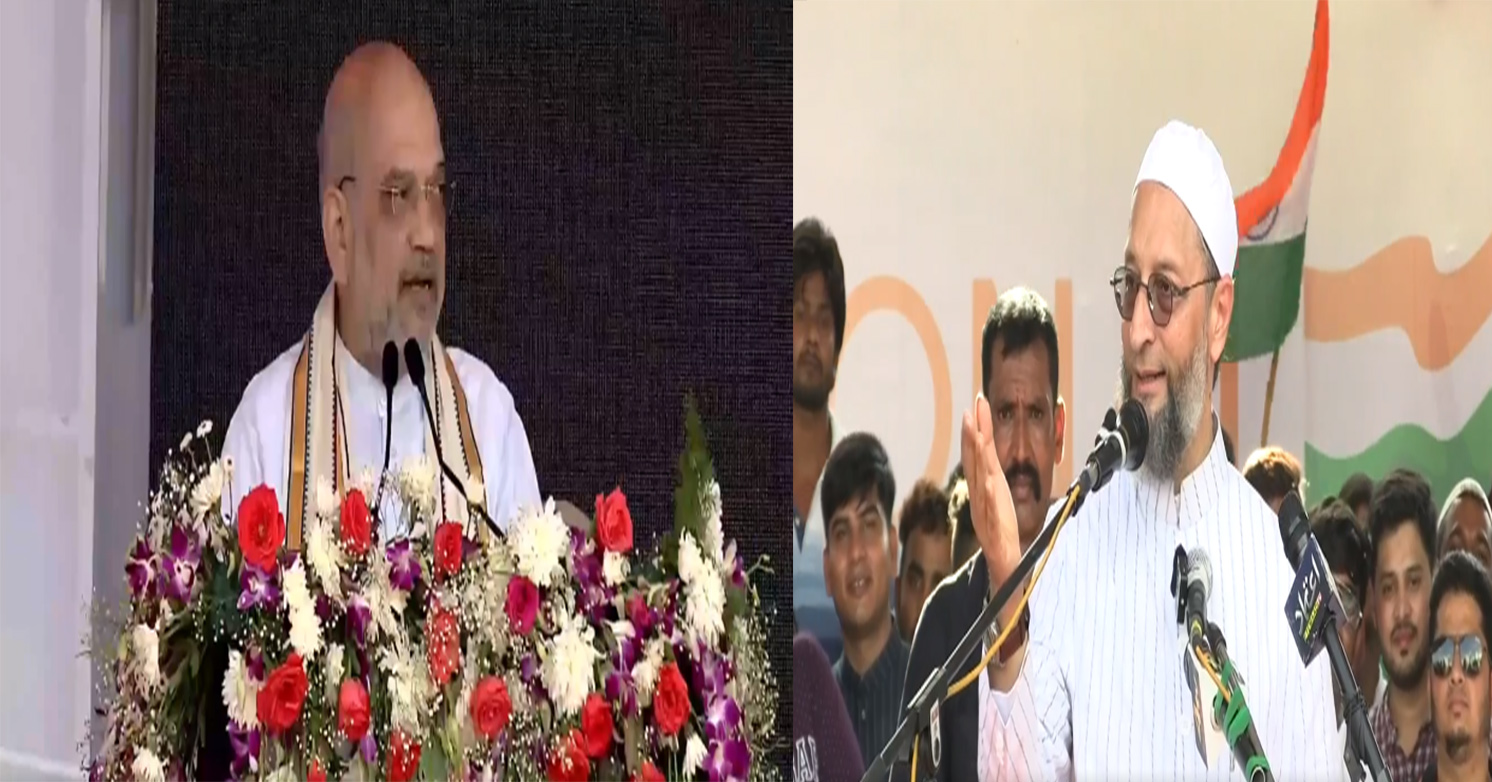

 india1 year ago
india1 year ago
 Sports1 year ago
Sports1 year ago
 india1 year ago
india1 year ago
 Entertainment5 months ago
Entertainment5 months ago
 Entertainment1 year ago
Entertainment1 year ago
 Karnataka1 year ago
Karnataka1 year ago
 india12 months ago
india12 months ago
 Karnataka1 year ago
Karnataka1 year ago
